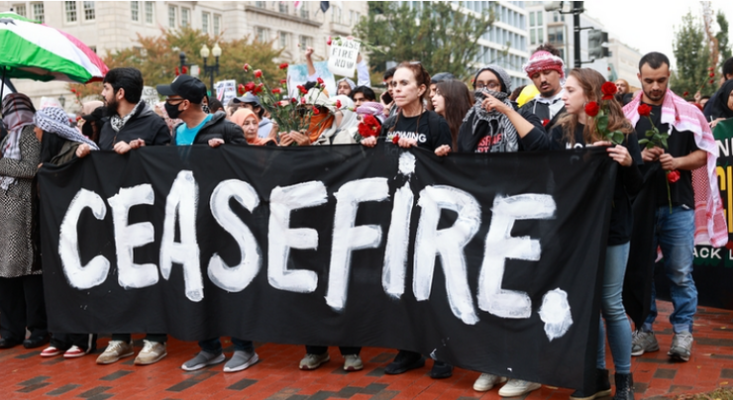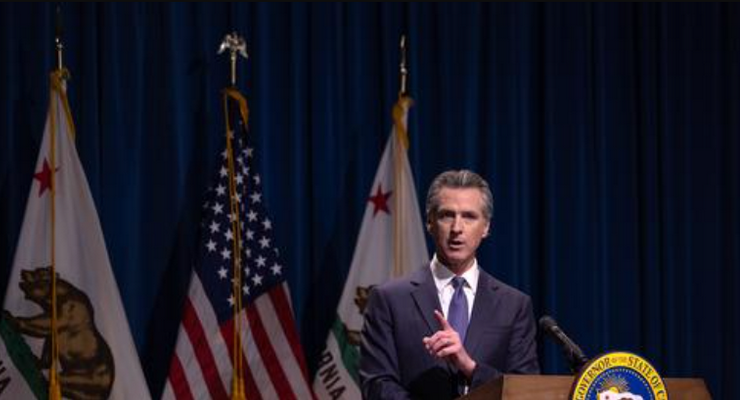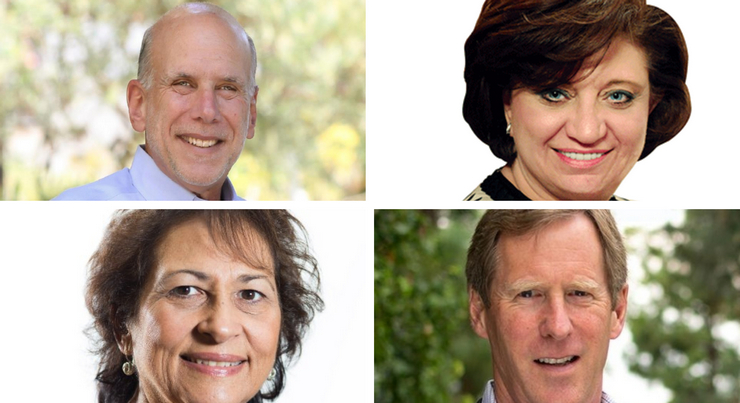
KPCC radio will convene a symposium Wednesday evening focused on an ongoing international refugee crisis and the Trump administration’s role in addressing it.
The panel discussion, “Refugees and Religion: Welcoming the Stranger in Modern Times,” will be hosted by KPCC’s religion and diaspora reporter Aaron Schrank.
At the heart of the discussion, perhaps the very reason for it, is the Trump administration’s refugee policy, which has broken with the practices of past administrations.
According to Schrank, the administration’s recent reduction of the annual refugee cap to a record low of 18,000 people, “isn’t playing well with churches and religious groups who have long led the way in resettling those fleeing peril around the world.”
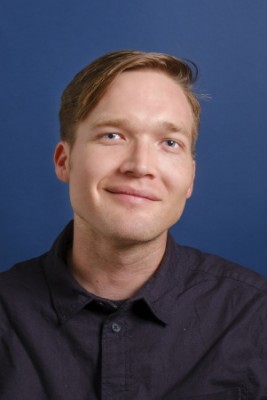
Much toward the same purpose, the administration, said Schrank, has slowly “dismantled” the U.S. Refugee Admissions program. In 2016, some 95,000 people entered the U.S. under its protection.
“Trump officials,” he said, “have also announced a plan allowing states and cities to opt out of accepting foreigners fleeing persecution.”
“The U.S. is the most generous country in the world when it comes to humanitarian relief efforts,” Claire Nicholson, a spokeswoman for the U.S. Citizenship and Immigration Service (USCIS), Department of Homeland Security, told Pasadena Now.
“The fiscal year 2020 refugee ceiling takes into account our existing and anticipated humanitarian workload on all fronts,” she continued. “Our nation continues to face a security and humanitarian crisis at our southern border which has created an unprecedented asylum workload for USCIS and creates difficulty for legitimate asylum seekers who need protection.”
The system is taxed.
The United Nations Refugee Agency estimates that more than 70 million people have been displaced globally, more than 25 million due to credible fears of persecution based on race, nationality, political opinion or religion, explained Schrank.
While nearly 80 percent of Americans identify with a faith group, they are divided on the question of accepting refugees. A 2018 Pew Survey revealed that 51 percent said the U.S. had a responsibility to accept refugees into the country, while 43 expressed the contrary sentiment.
The discussion will be focused on the Abrahamic faiths of Christianity, Judaism, and Islam.
“The most quoted and repeated scriptures, across the board,” he said, “are those interpreted as pro-refugee resettlement, but others are interpreted as aligning with stricter immigration views.”
Faith-based groups have been in the forefront of refugee advocacy over the years, but as the stream of beleaguered people slows to a drip-drip under Trump, outfits focused on the struggle are seeing resources shift, staff cut, or complete decommissions.
“Refugee advocates say it will take years to rebuild the capacity now disappearing,” said Schrank.
Nahla Kayali is founder and executive director, Access California Services (ACS), provides health and human services to underserved communities with a focus on immigrants and refugees in the Arab American and Muslim diaspora.
“We have many programs, from mental health to case management to education and immigration services,” she said. “So we do a lot with the immigrant and refugee communities to try to help them acculturate the fastest way that they can.”
She will be a panel speaker and discuss how, at the earliest onset of the Trump administration, ACS lost $800,000 in federal funding and was forced to shut down entire programs of assistance.
Neil Comess-Daniels is rabbi at Santa Monica’s Temple Beth Shir Shalom, and he will provide the perspective of the Jewish faith.
“It true for us, as the Jewish people, that throughout history, certainly after the Exodus from Egypt, and certainly after the second destruction of the Temple around the year 70, we were homeless, immigrants and refugees for 2000 years. So if anybody knows the plight of the immigrant, it’s us.”
The policy actions taken of late, from both a historical and legal perspective within Judaism are, “both legally and morally abhorrent from a Jewish point of view,” said Comess-Daniels.
“There is a Christian obligation to love your neighbor, to care for the most vulnerable among us and to play the role of the good Samaritan, which defines your neighbor,” said Scott Rae, professor, Christian ethics, Biola University, who is also a panelist.
Christianity doesn’t have a body of law, rather offers broad guidelines of behavior, he observed, and these are not easily translated into public policy.
There is debate among U.S. Christians on how to do this.
“For the person who says ‘what part of illegal, don’t you understand?’ I’d say there’s more to it than that in terms of how we behave towards our neighbors and towards strangers in our midst,” said Rae. “But for the person who says what we really need is an open borders policy and risk everything to take care of immigrants, I’d tell them there’s more to it and that as well.”
Wednesday, Dec. 4, 2019, 7:00 p.m. to 8:30 p.m., The Crawford Family Forum, 474 South Raymond Avenue. To attend click here.












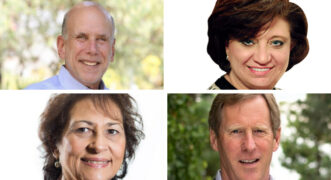

 0 comments
0 comments

